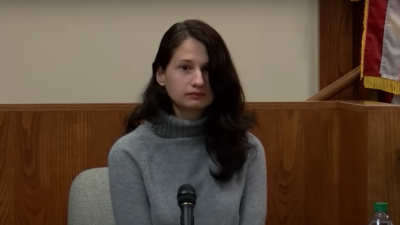

Gypsy Rose and Anna Delvey Getty Images (2)
Gypsy Rose Blanchard. Anna Delvey. Erik and Lyle Menendez. Over the last few years, killers and con artists have gone from names you hear in the news to figures more akin to celebrities with reality shows, hundreds of thousands of social media followers and everyday people invested in every aspect of their lives, from their marriages to what they’re eating behind bars.
According to a June 2024 YouGov survey, 57 percent of American adults consume true-crime content, and the entertainment industry has long drawn inspiration from the world’s most infamous cases (think: the Zodiac Killer and Ted Bundy). But this current crop of criminals aren’t so black-and-white.
Case in point: Blanchard. She pleaded guilty to second-degree murder for her role in the killing of her mom, who experts believe had Munchausen by proxy. In 2019, Hulu gave the story the Hollywood treatment in The Act. After Blanchard, 33, was released from prison, she filmed a Lifetime docuseries and appeared on The Kardashians.
Meanwhile, Delvey — the “fake heiress” who was indicted for stealing about $275,000 — was portrayed as a criminal mastermind by Julia Garner in Netflix’s Inventing Anna. This year, Delvey, 33, got special permission from ICE to travel out of New York to compete on Dancing With the Stars, bedazzled ankle bracelet and all.
According to criminologist James Pipe, these ex-cons becoming rising stars “is rooted in society’s fascination with darker aspects of human behavior,” he tells Us. “People are drawn to stories that explore moral ambiguity, and their cases challenge traditional ideas of right and wrong.”
The Menendez brothers are another example, who, despite killing their parents in 1989, have become antiheros in light of Ryan Murphy’s Monsters. “Having an actor play a criminal gets people interested in the real-life case,” psychiatrist and expert forensic witness Carole Lieberman explains. Without Monsters, criminal defense attorney Stacy Schneider says, “I don’t believe the prosecution would have revisited their lengthy jail sentences.”

With more scripted series getting the green light — Melissa McCarthy will star in a Paramount+ project about JonBenét Ramsey, while Hulu’s Amanda, based on the 2007 Amanda Knox case, is currently filming — this trend isn’t going anywhere. Netflix’s Cold Case: Who Killed JonBenét Ramsey? director Joe Berlinger has a theory on why the genre has become a “go-to bucket” for Hollywood: “There’s a hunt for justice, a protagonist and an antagonist vying for the truth and [at times,] a resolution at the end,” he tells Us, pointing to its “classic dramatic structure.” Lieberman shares the same sentiment: “Truth is stranger than fiction and attracts more viewers. Also, the industry seems to be short on original ideas these days.”
These projects can also serve a larger purpose. National Center for Victims of Crime CEO Renée E. Williams credits “good true crime” — like Anna Kendrick’s Woman of the Hour about serial killer Rodney Alcala — for educating viewers. “Decisions such as what images to show [can tell] tell an impactful story versus one that’s harmful.” she shares. So, while this form of media may be America’s guiltiest pleasure, it’s important to treat the stories that inspired them as what they really are: cautionary tales.
“The stories are so sensational that it feels like a ‘you can’t make this stuff up’ moment,” Schneider tells Us.
For more on true crime getting the Hollywood treatment, pick up the latest issue of Us Weekly — on newsstands now.


Leave a Reply